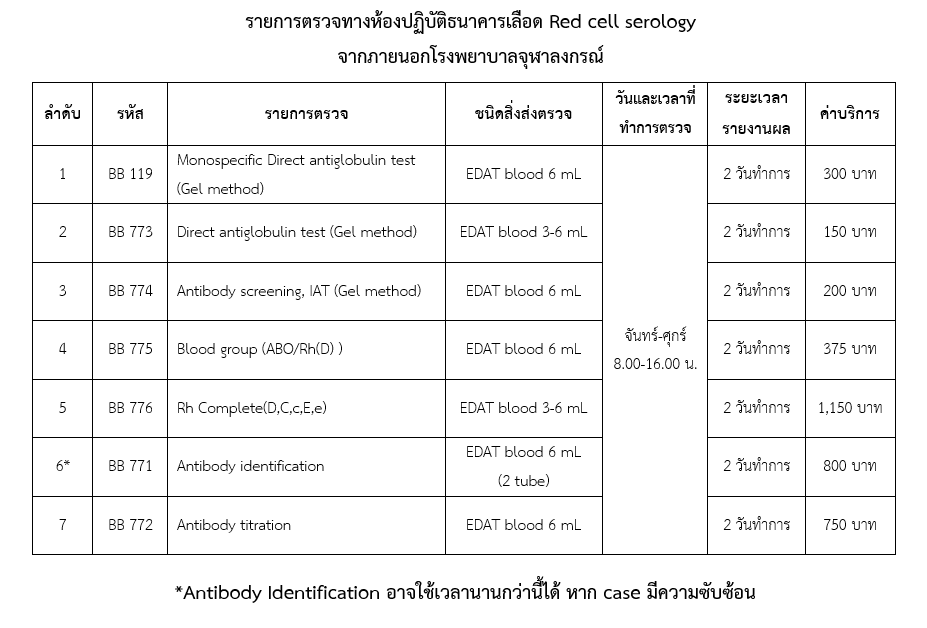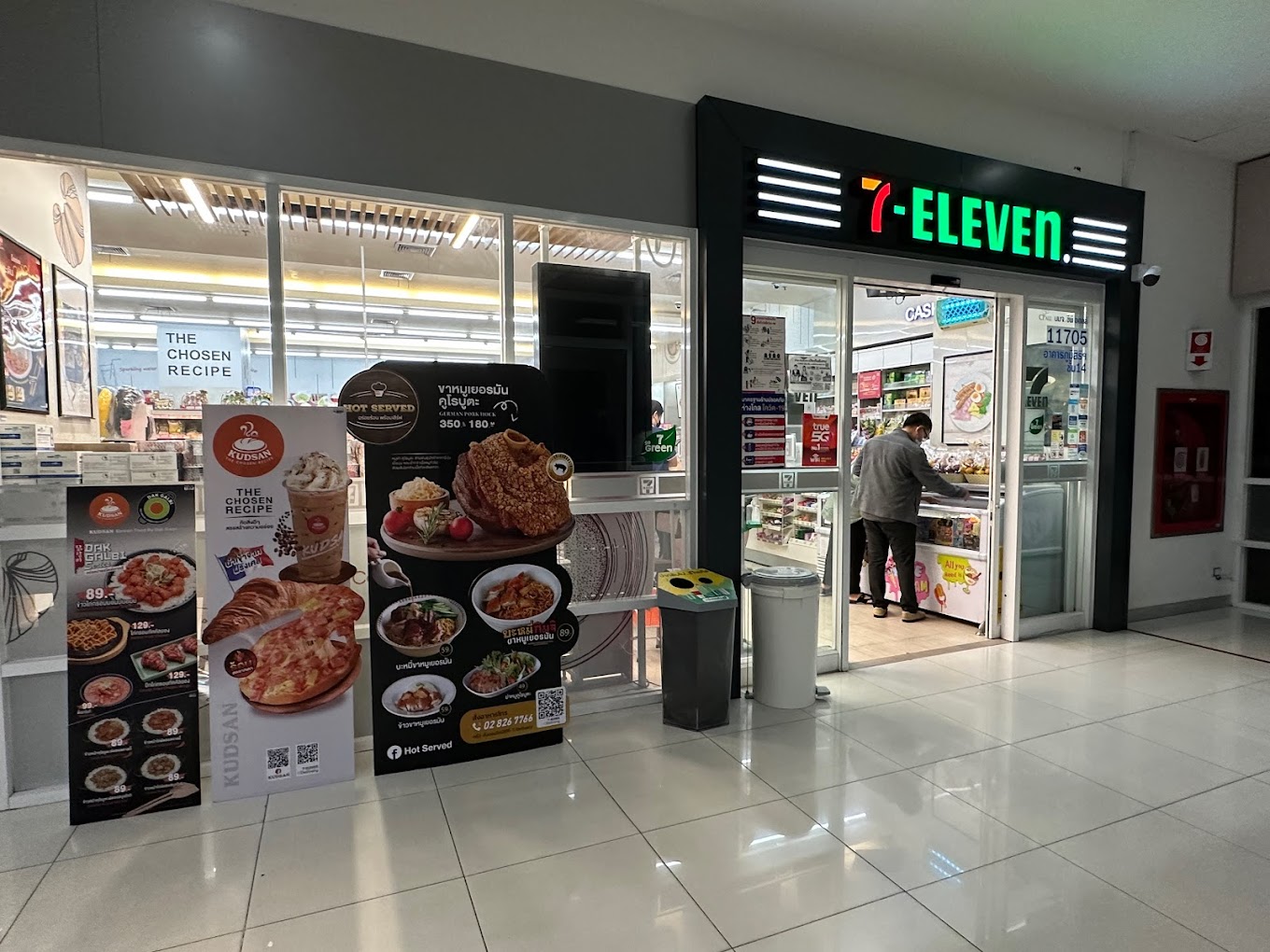The Blood Bank Division is a department of King Chulalongkorn Memorial Hospital under the Thai Red Cross Society. It was established in 1953 (B.E. 2496) and initially called the “Blood Room,” located at the Supat Chantabose Building in the Obstetrics Department. Its responsibilities included recruiting blood donors, determining blood types, and preparing blood and its components for patients.
1958 The Blood Room was renamed the Blood Donation Unit and relocated to the Napapornprapa Building.
1967 Operations moved back to the Supat Chantabose Building in the Obstetrics Department.
1970 Relocated to the Rabieb Kunnakasem Building.
1980 The Blood Donation Unit was elevated to the Blood Bank Department.
1996 The department became the Blood Bank Division.
2016 The division was relocated to the 3rd floor, Zone B of the Bhumisirimangalanusorn Building, where it remains to this day.
Currently, the Blood Bank Division serves as the medical laboratory specializing in blood banking for King Chulalongkorn Memorial Hospital, operating under the supervision of the Thai Red Cross Society in compliance with Thai law. Its responsibilities include:
- Providing blood collection services for preparation.
- Offering blood preparation and conducting medical laboratory tests related to blood banking.
- Treating patients using an automatic blood cell separator.
The division caters to both outpatients and inpatients and operates 24/7 without holidays, ensuring continuous service for the benefit of patients and convenience for attending physicians. Additionally, it offers consultation and advice on laboratory-related matters directly managed by the division to physicians, service users, and the general public.
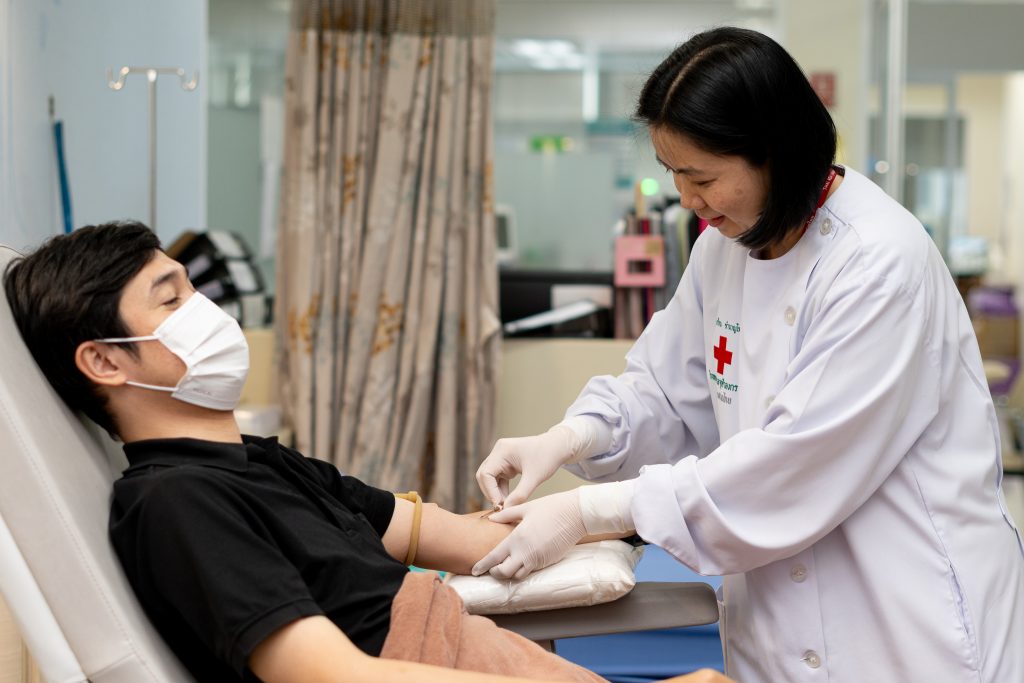
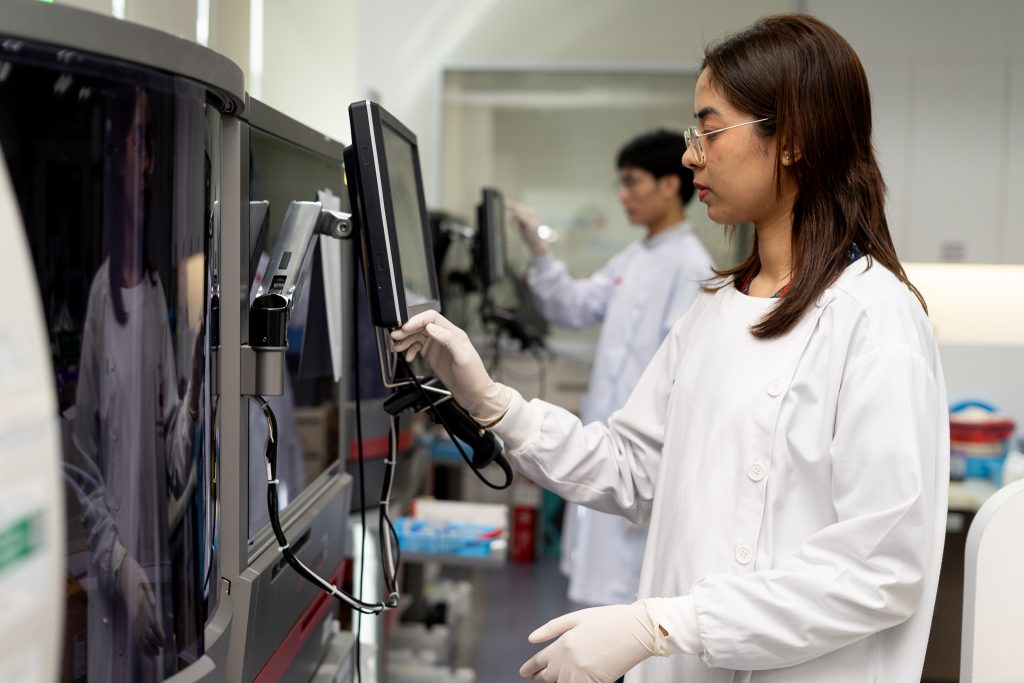
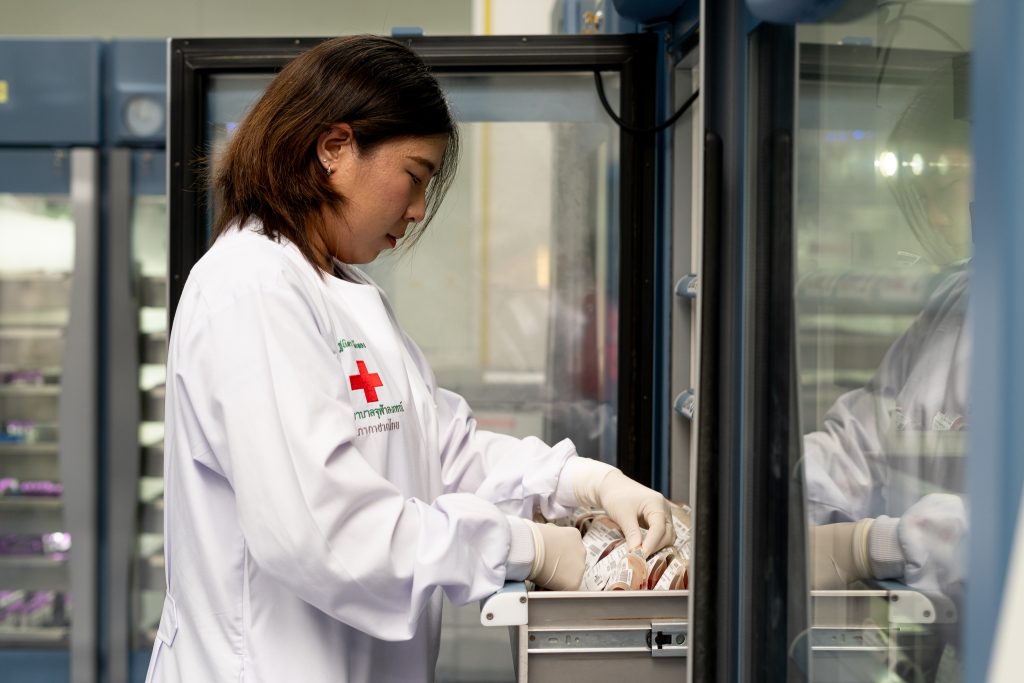
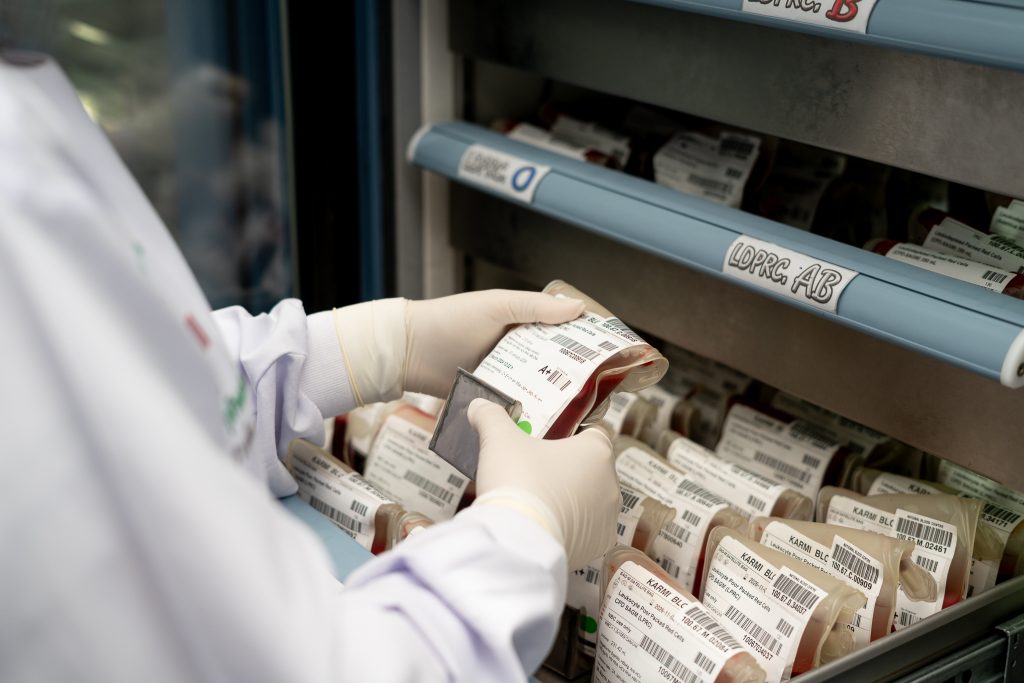
Obligation
- Provide quality blood product preparation services and laboratory services that meet international standards, ensuring timely delivery and customer satisfaction.
- Oversee and regulate the appropriate use of blood products at King Chulalongkorn Memorial Hospital to maximize patient benefits.
- Train high-quality medical graduates and specialists in transfusion medicine with competencies on par with leading educational institutions both domestically and internationally.
- Conduct research to support the division’s teaching and service activities.
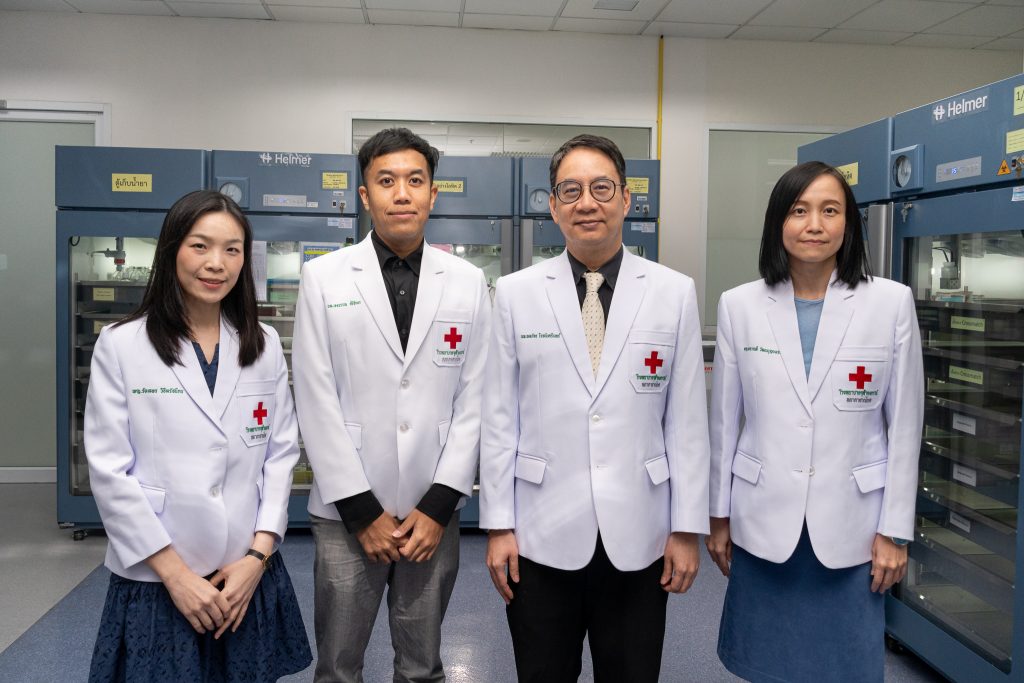
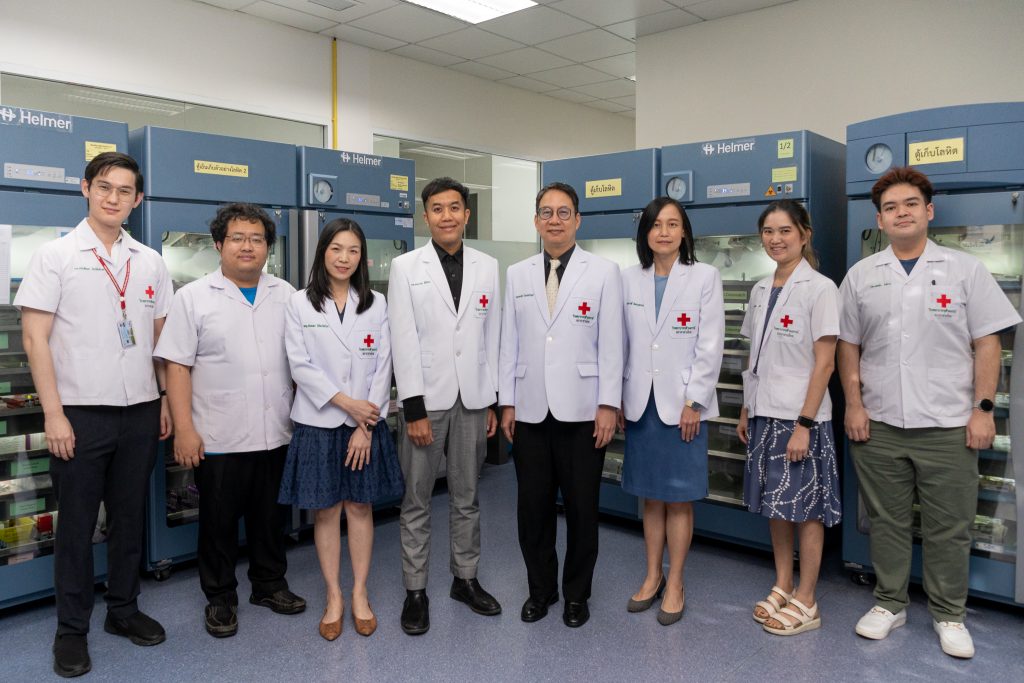

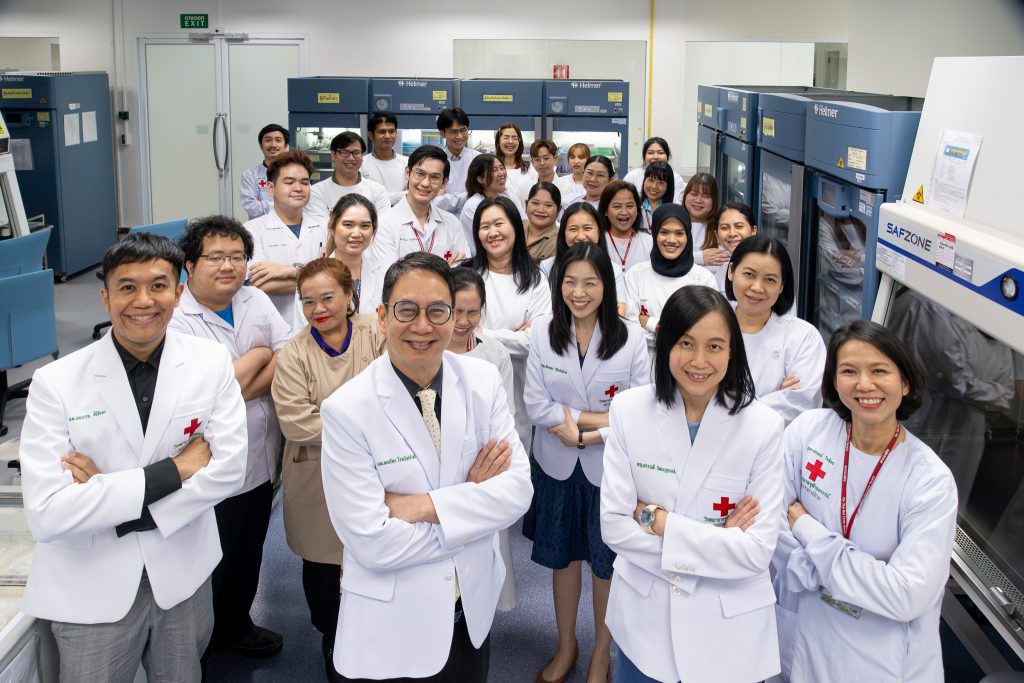
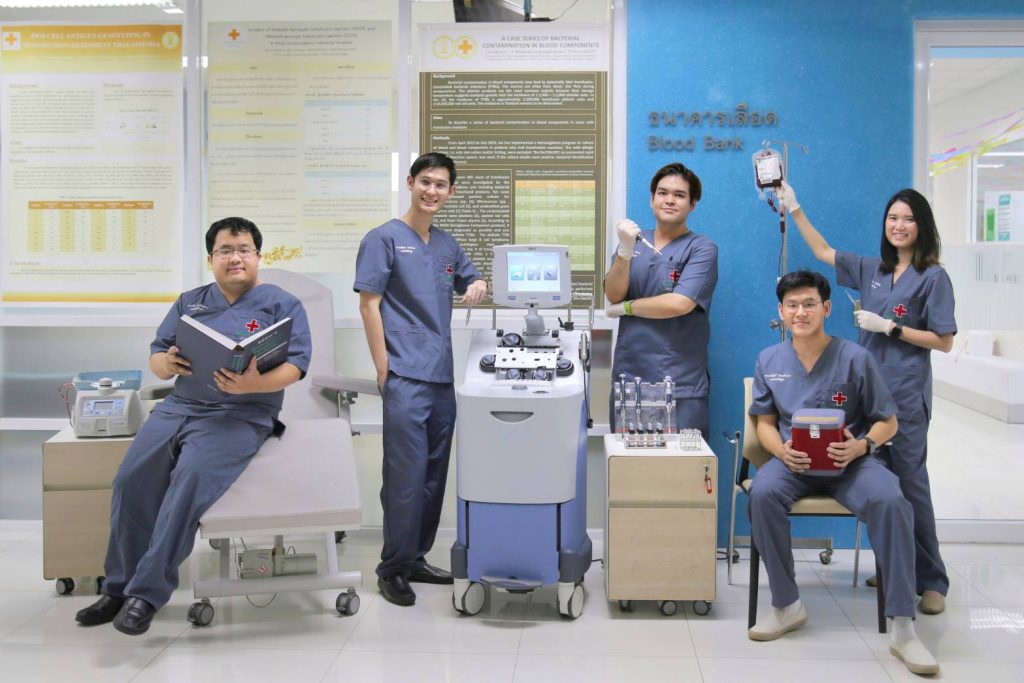
Support Activities
The Blood Bank Division collaborates with various departments within the hospital to ensure the proper and appropriate use of blood products. It also collects statistics on blood usage and adverse reactions to improve its services continuously.
The division’s laboratory services are divided into five units as follows:
- Blood and blood component preparation laboratory (Routine Lab).
- Special operation laboratory (Special Lab).
- Blood-letting therapeutic, apheresis and peripheral blood stem cell collecting laboratory.
- Molecular biology and advanced diagnostic testing laboratory (Advanced Diagnostic Lab).
- The Specimen accepting/blood components preparation and dispensing laboratory (Blood Service Lab).
The Blood Bank Division places quality at the core of its services. It has consistently been certified under ISO 15189 and ISO 15190 medical laboratory standards by the Bureau of Laboratory Standards, Department of Medical Sciences, Ministry of Public Health, since 2010. The division has also received accreditation for its laboratory standards from the Royal College of Pathologists of Thailand.
Since 2018, it has developed and implemented an intelligent transport container system capable of real-time temperature monitoring during transportation. This innovation earned the Bronze Award for the “Alert Telecar” project under the Lean in Healthcare initiative. The project, titled “Reducing the Preparation Time for Blood Components for Patients with Massive Blood Loss in the Emergency Room”, has significantly improved service efficiency.
Additionally, the division became the first in the country to adopt the Electronic Crossmatch System for blood preparation. This system has reduced preparation times, lowered costs, and enhanced the speed of service delivery while maintaining high standards.

